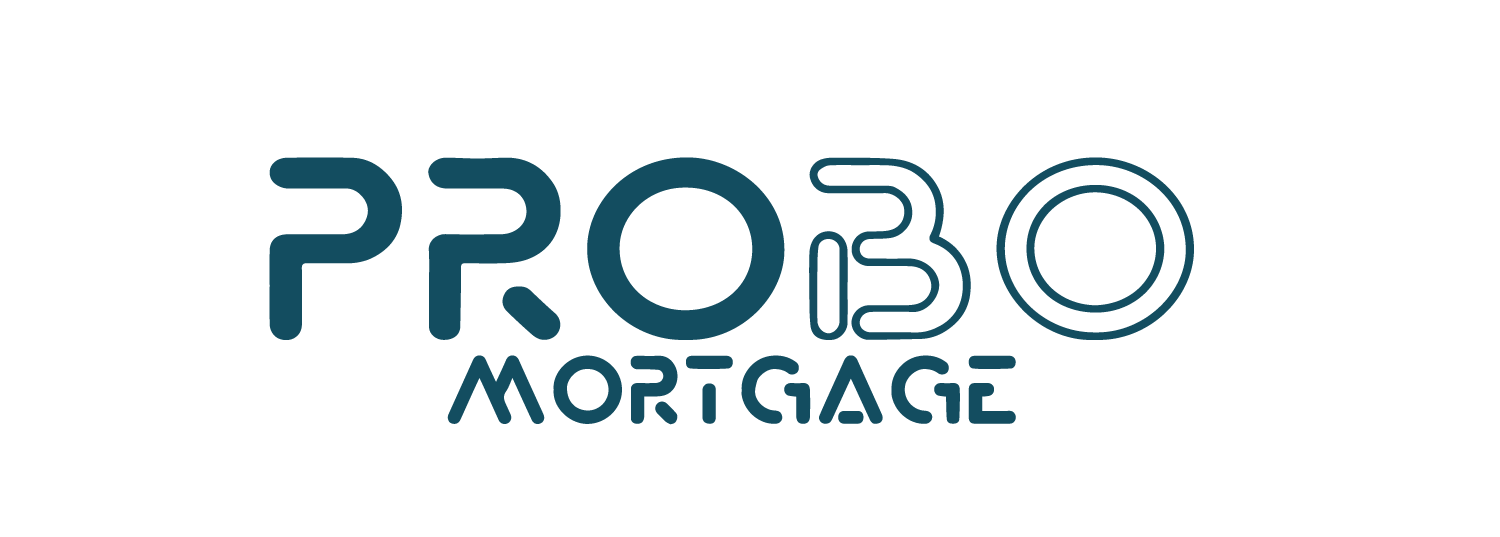Are you dreaming of homeownership but worried about the costs? You’re not alone. Many people feel that owning a home is out of reach due to rising property prices and financial constraints. Fortunately, affordable housing loans exist to make your dream more attainable. These loans are designed specifically for individuals and families looking for budget-friendly options to secure their own homes. Navigating the world of mortgages can be daunting, especially with various terms and requirements floating around. But fear not! This guide will equip you with all the essential information about affordable housing loans, from eligibility criteria to application processes. Let’s dive in and explore how an affordable housing loan might just be the key to unlocking your front door!
Eligibility Requirements for Affordable Housing Loans
To qualify for an affordable housing loan, certain eligibility requirements must be met. These criteria are designed to help ensure that the loans go to individuals and families in genuine need. First, income limits play a significant role. Typically, your household income should fall below a specific threshold based on your location and family size. This helps target assistance toward those who may struggle with traditional financing options.
Next, potential borrowers often need to demonstrate stable employment history. Lenders want assurance that you can reliably make monthly payments over time. Your credit score also matters; while it doesn’t have to be perfect, many programs look for a minimum range. Lastly, being a first-time homebuyer can enhance your chances of approval. Some programs specifically cater to individuals stepping into homeownership for the first time, providing additional support and resources along the way.
Types of Affordable Housing Loans
When exploring affordable housing loans, it’s essential to understand the different options available. Each type caters to various needs and situations. FHA loans are popular for first-time homebuyers. They require a lower down payment and have flexible credit score requirements. This makes them an excellent choice for those with limited savings. VA loans serve veterans and active-duty military members. These loans often come with zero down payment options and competitive interest rates, making homeownership more attainable for service members.
USDA loans target rural residents seeking homes in designated areas. These loans promote rural development by offering low-interest rates and no down payment requirements. Lastly, there are state-specific programs that offer financial assistance tailored to local conditions. Many states provide grants or forgivable loans aimed at helping low-to-moderate-income families secure housing. Understanding these types can help you make informed decisions as you navigate your path toward homeownership.
Benefits of Affordable Housing Loans
Affordable housing loans offer numerous advantages for homebuyers seeking financial relief. One of the most significant benefits is lower interest rates, which can save borrowers thousands over the life of their loan. This means more money in your pocket each month. Another advantage is reduced down payment requirements. Many programs allow buyers to put down as little as 3% or even less, making homeownership accessible to those who might otherwise struggle to save enough.
Additionally, affordable housing loans often come with flexible credit score criteria. This opens doors for individuals with limited credit histories or past financial challenges. Homebuyer education programs frequently accompany these loans, helping applicants understand the buying process and manage their finances better. Such resources empower first-time buyers and foster long-term success in homeownership.
How to Apply for an Affordable Housing Loan
Applying for an affordable housing loan involves several key steps. Start by gathering the necessary documents. This usually includes proof of income, tax returns, and identification. Next, it’s crucial to find a lender that specializes in affordable housing loans. Research different options and read reviews to ensure you choose a reputable institution.
Once you’ve selected a lender, submit your application along with all required documentation. Be prepared for questions about your financial history and eligibility criteria. Stay organized throughout this process. Keep copies of everything you submit, as this can help streamline communications with your lender later on. Each step is important in making sure your application stands out positively in the eyes of potential lenders.
– Gathering Required Documents
Gathering the right documents is a critical step when applying for an affordable housing loan. Start by compiling your financial records. This includes pay stubs, tax returns, and bank statements from the last few months. Next, you’ll need to provide proof of identity. A government-issued ID or driver’s license works well for this purpose. Additionally, if you are self-employed or have other income sources, gather documentation that supports these funds.
Don’t forget about credit history! Lenders will want to review your credit report as part of the assessment process. If possible, check it beforehand so you’re aware of any discrepancies that might affect your application. Lastly, be prepared to show any current debts or obligations like student loans or car payments. Having everything organized can make a significant difference in how smoothly your application goes through.
– Submitting the Application
Submitting your application for an affordable housing loan is a crucial step in the homebuying process. It’s where you formally express your intent to borrow funds, and it’s important to approach it with care. First, ensure all your documents are organized before submission. This includes financial statements, proof of income, and personal identification. A well-prepared application can speed up the review process.
Next, choose whether to apply online or visit a lender in person. Each method has its pros; online submissions might be quicker but face-to-face meetings can provide personalized guidance. After submitting, remain proactive. Follow up with your lender for updates on the status of your application. Being engaged shows that you’re serious about securing the loan and helps keep communication lines open as they assess your eligibility.
Tips for a Successful Loan Application
Improving your credit score is a crucial step. A higher score can significantly enhance your chances of securing an affordable housing loan. Review your credit report for errors and pay down existing debts. Saving for a down payment also makes a difference. Start setting aside money regularly, even if it’s just a small amount each month. It shows lenders you’re financially responsible.
Consider getting pre-approved before applying. This process provides clarity on how much you can borrow and strengthens your application by demonstrating to lenders that you’re serious about purchasing property. Finally, don’t shy away from asking questions during the application process. Understanding the terms and conditions will help you make informed decisions and avoid surprises later on. Engaging with potential lenders ensures that you’re well-prepared every step of the way.
– Improving Your Credit Score
Improving your credit score is a vital step when applying for an affordable housing loan. A higher score can open doors to better interest rates and terms. Start by checking your current credit report. Look for errors or inaccuracies that could be dragging your score down. Dispute any incorrect information promptly; this can have a positive impact on your rating.
Next, focus on paying bills on time. Consistent payments demonstrate reliability, which lenders appreciate. Setting up automatic payments can help ensure you never miss a due date. Reducing outstanding debts also plays a significant role in boosting your score. Aim to pay off high-credit-utilization accounts first, as these have the most influence on your overall credit profile. Finally, avoid opening new lines of credit just before applying for a loan. Each inquiry can slightly lower your score and may raise red flags for potential lenders.
– Saving for a Down Payment
Saving for a down payment is one of the most crucial steps when considering an affordable housing loan. It can seem daunting, but with a clear plan, you can make it achievable. Start by setting a specific savings goal based on your desired home price. Knowing exactly how much you need will guide your efforts.
Next, create a budget that identifies areas where you can cut back on spending. Small sacrifices today can lead to big rewards tomorrow.Consider opening a dedicated savings account for your down payment. This keeps your funds separate and makes it easier to track progress. Additionally, explore any local programs or grants designed to assist first-time buyers in reaching their down payment goals. Every bit helps! Lastly, be patient with yourself; saving takes time but staying focused will get you closer to owning your dream home.
– Getting Pre-approved
Getting pre-approved for an affordable housing loan is a smart move. It shows lenders you’re serious and ready to buy. This process gives you a clearer picture of how much money you can borrow. During pre-approval, lenders will review your financial health. They look at your income, debt, and credit history. This step helps identify any potential issues early on.
Having that pre-approval letter in hand boosts your confidence as a buyer. It sets realistic expectations about what you can afford in the housing market. Additionally, many sellers prefer buyers with pre-approval letters. It indicates that you’re financially stable and prepared to make an offer quickly. In competitive markets, this can give you the edge needed to secure your dream home before someone else does.
Conclusion:
When considering an affordable housing loan, it’s important to weigh your options. These loans can be a gateway to homeownership, especially for those on a tight budget. They offer lower interest rates and flexible terms that make owning a home more attainable. Think about your financial situation and long-term goals. If you meet the eligibility requirements and find a suitable loan type, this could be the right move for you. Take time to research lenders and understand all aspects of the application process. Remember, making informed decisions will set you up for success in your journey toward homeownership. An affordable housing loan might just provide the opportunity you’ve been waiting for when navigating today’s complex real estate market.
FAQs:
- What is an affordable housing loan, and how does it work?
Affordable housing loans are designed to make homeownership accessible by offering favorable terms and rates. These loans cater to eligible borrowers looking for lower-cost financing options to purchase a home. - Who qualifies for an affordable housing loan?
Eligibility often depends on factors like income, credit score, and property type. Some programs specifically support first-time buyers or those in designated income brackets. - What documents are required to apply for an affordable housing loan?
Typically, you’ll need income statements, credit reports, proof of employment, and identification. Your lender may also require additional documents based on the loan type. - How is an affordable housing loan different from a traditional home loan?
Affordable housing loans often come with lower interest rates, smaller down payments, and more lenient qualification criteria to help make homeownership achievable for more people.






